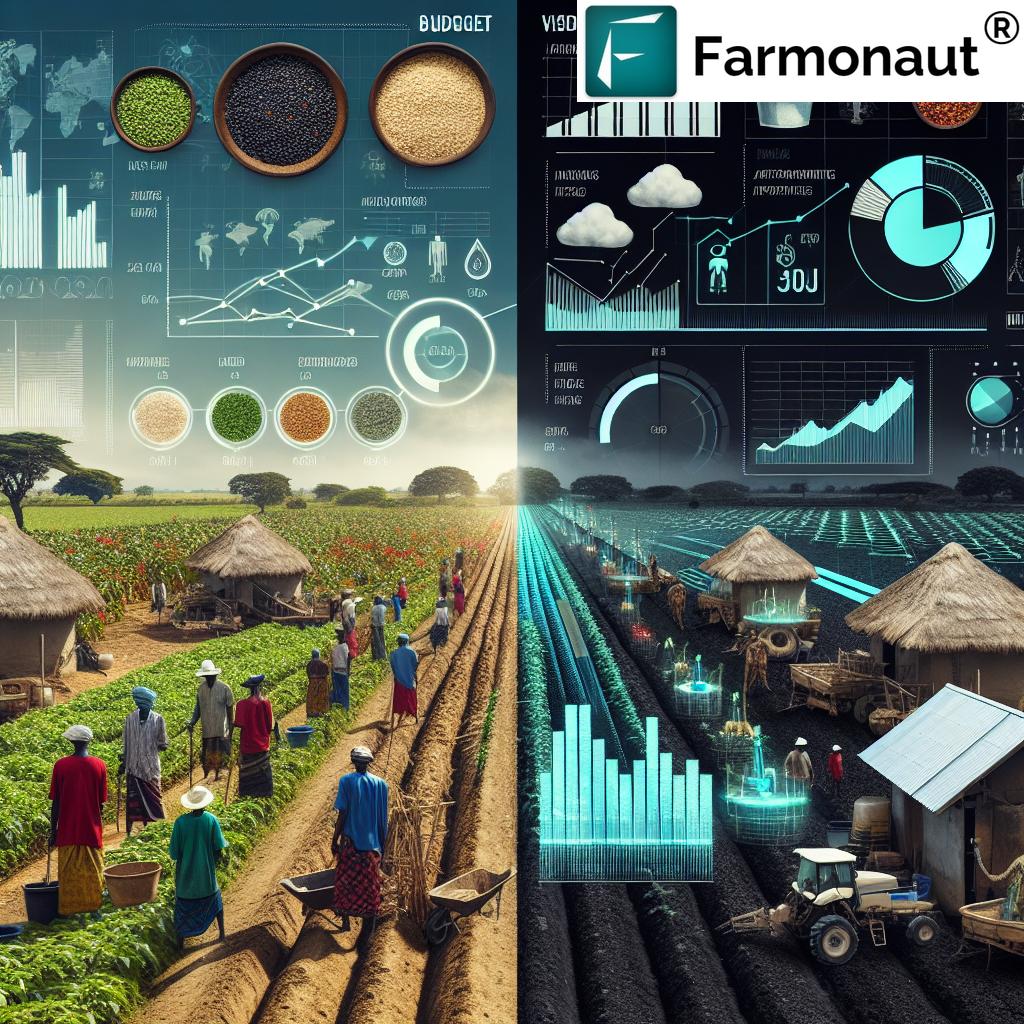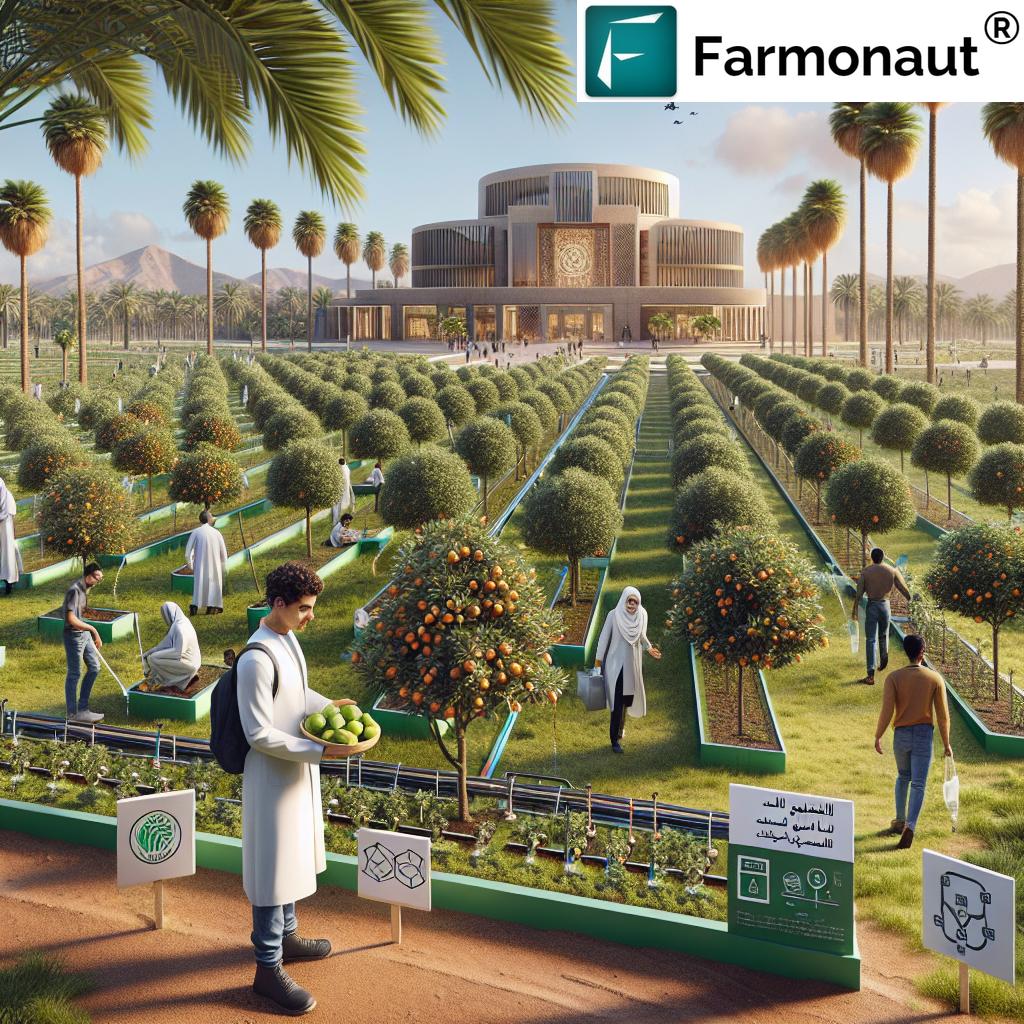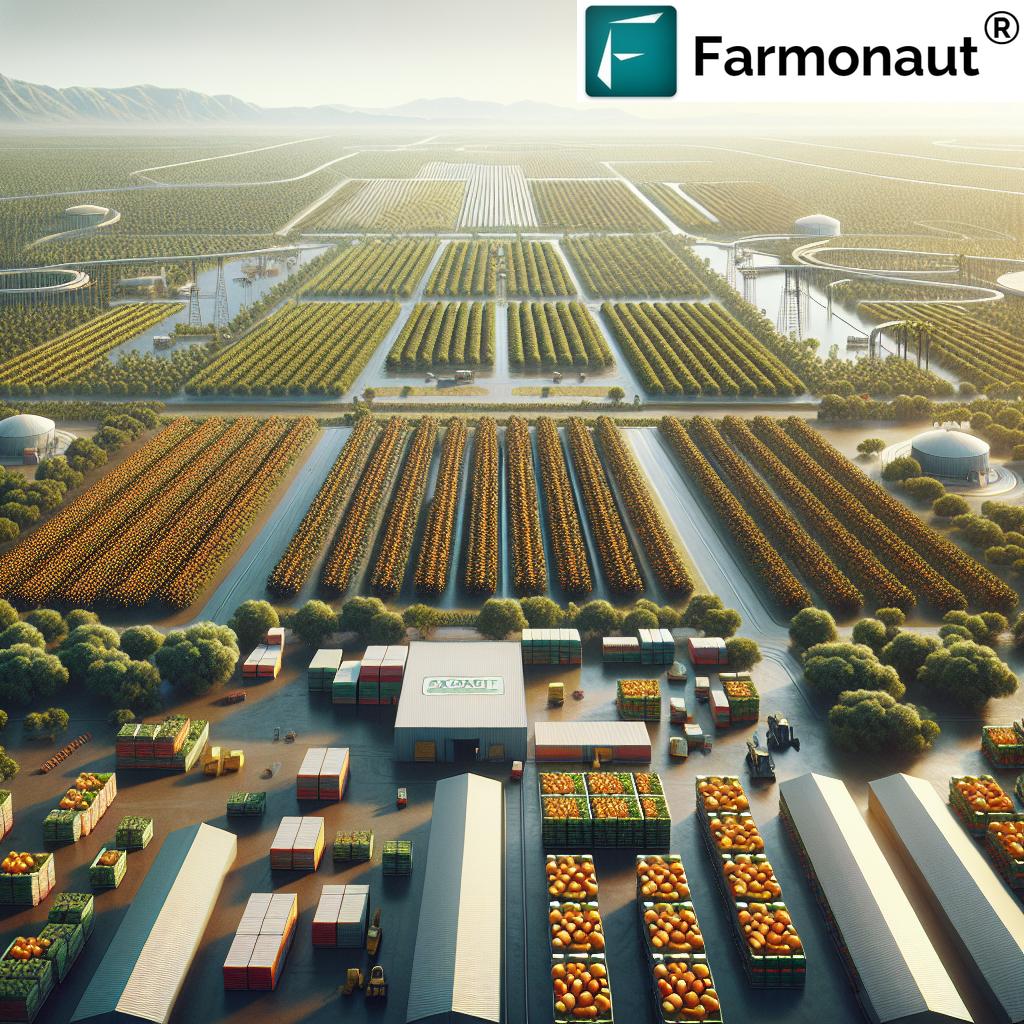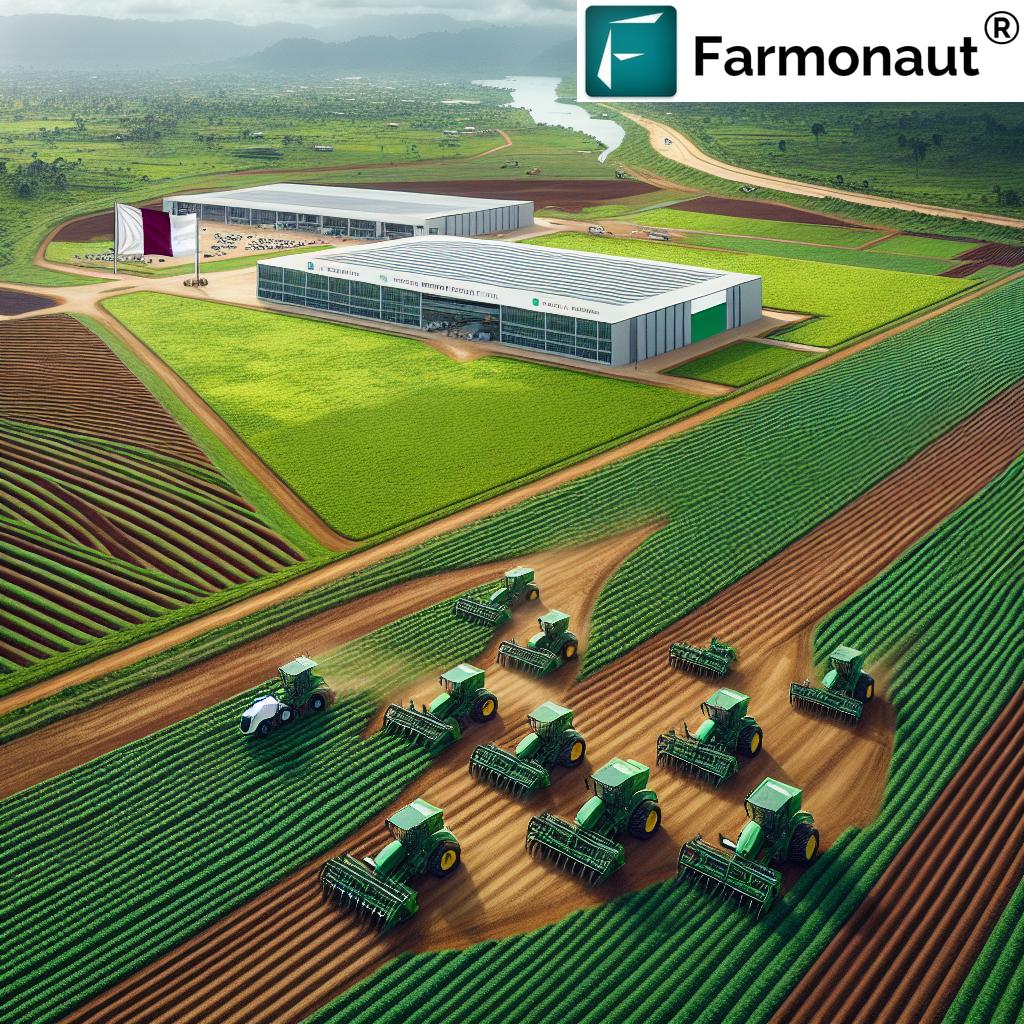Revolutionizing Liberian Agriculture: How Farmonaut’s Precision Farming Tech Boosts Sector Reforms and Economic Growth
“Liberia’s proposed 2025 budget of $851.8 million aims to boost economic growth through sustainable agriculture and smart farming.”
In the heart of West Africa, Liberia stands at the cusp of a transformative era in its agricultural sector. As we delve into the intricacies of the nation’s draft national budget for fiscal year 2025, we uncover a tapestry of reforms, technological advancements, and economic strategies poised to revolutionize Liberian agriculture. At the forefront of this agricultural renaissance is the integration of precision farming technologies, with Farmonaut emerging as a key player in this evolving landscape.
The 2025 Budget: A Catalyst for Agricultural Transformation
The proposed US$851.8 million budget for fiscal year 2025 has ignited a passionate debate across Liberia, particularly regarding agricultural sector reforms and public sector wage policies. This comprehensive fiscal plan underscores the government’s commitment to modernizing the agricultural sector while addressing longstanding issues of wage disparities and economic growth.
Central to this budget is a significant allocation towards agricultural technology advancements and extension services. This focus on technological integration aligns perfectly with the global trend towards precision farming and smart agricultural practices. It’s here that Farmonaut’s innovative solutions come into play, offering satellite-based farm management tools that could revolutionize how Liberian farmers monitor crops and manage their resources.

Wage Reforms: A Step Towards Economic Equity
A cornerstone of the 2025 budget is the commitment to increasing the minimum monthly salary for public servants to US$150. This move is not just about numbers; it’s about addressing systemic pay disparities across various sectors, including agriculture and health. By raising the wage threshold, the government aims to create a more equitable economic environment, potentially boosting morale and productivity across the public sector.
For the agricultural sector, this wage reform could have far-reaching implications. Higher wages for agricultural extension officers and public sector agronomists could lead to improved service delivery and knowledge transfer to farmers. This, coupled with the integration of agricultural technology like Farmonaut’s precision farming tools, could create a powerful synergy for sector growth.
Precision Farming: The Farmonaut Advantage
As Liberia looks to modernize its agricultural practices, precision farming technologies stand out as a game-changer. Farmonaut, with its advanced satellite-based farm management solutions, is well-positioned to play a crucial role in this transformation. Let’s explore how Farmonaut’s technologies align with Liberia’s agricultural goals:
- Satellite-Based Crop Health Monitoring: Farmonaut’s use of multispectral satellite images for monitoring crop health could provide Liberian farmers with unprecedented insights into their fields. This technology allows for real-time tracking of vegetation health (NDVI), soil moisture levels, and other critical metrics, enabling farmers to make data-driven decisions about irrigation, fertilizer usage, and pest management.
- Jeevn AI Advisory System: This AI-driven tool could revolutionize farm advisory services in Liberia. By delivering personalized, real-time insights and expert crop management strategies, Jeevn AI could significantly enhance farm productivity and efficiency across the country.
- Resource Management: With tools for efficient resource allocation, Farmonaut could help Liberian agribusinesses optimize their operations, reducing costs and improving overall farm management.
The integration of these technologies aligns perfectly with Liberia’s goals of sustainable agriculture practices and smart farming techniques, as outlined in the 2025 budget proposal.
Agricultural Economic Growth: The Ripple Effect
The focus on agricultural technology and wage reforms in the 2025 budget is expected to have a significant impact on Liberia’s overall economic growth. Minister of Finance Augustine Kpehe Ngafuan has projected a 5.8 percent increase in economic growth, bolstered by strong performances in key sectors including agriculture.
Here’s how the integration of precision farming technologies like Farmonaut could contribute to this growth:
- Increased Crop Yields: By providing farmers with detailed insights into crop health and soil conditions, Farmonaut’s technology could help increase crop yields significantly.
- Resource Optimization: Precision farming allows for more efficient use of water, fertilizers, and pesticides, potentially reducing input costs for farmers.
- Data-Driven Decision Making: Access to real-time data and AI-powered insights could empower Liberian farmers to make more informed decisions, leading to better farm management and increased profitability.
Agricultural Extension Services: Bridging the Technology Gap
The 2025 budget’s allocation for agricultural extension services is crucial for the successful implementation of precision farming technologies. These services play a vital role in bridging the gap between advanced agricultural technologies and traditional farming practices.
Farmonaut’s user-friendly platform could be an invaluable tool for extension officers. By leveraging Farmonaut’s satellite data and AI-powered insights, extension officers could provide more targeted and effective support to farmers across Liberia. This synergy between technology and on-ground expertise could accelerate the adoption of sustainable agriculture practices and smart farming techniques.
“The budget plans to increase minimum monthly salary for public servants to $150, addressing pay disparities across sectors.”
Challenges and Criticisms
While the proposed budget and its focus on agricultural technology advancements have been met with enthusiasm, they have not been without criticism. Some critics argue that these initiatives echo policies of previous administrations, raising questions about the continuity and effectiveness of wage reforms and agricultural policies.
Former Finance Minister Samuel Tweah has pointed out that the proposed salary increases may be a continuation of policies implemented under the previous administration rather than innovative reforms. This critique highlights the need for a careful examination of how new technologies and wage policies are implemented to ensure they bring about meaningful change in the agricultural sector.
The Road Ahead: Implementing Precision Farming in Liberia
As Liberia moves forward with its agricultural sector reforms, the successful implementation of precision farming technologies will be crucial. Here’s how Farmonaut’s solutions could be integrated into Liberia’s agricultural landscape:
- Pilot Programs: Initiating pilot programs in key agricultural regions to demonstrate the benefits of satellite-based crop monitoring and AI-driven farm management.
- Training and Capacity Building: Collaborating with agricultural extension services to train farmers and extension officers in the use of precision farming tools.
- Data Integration: Working with the Liberian government to integrate Farmonaut’s data into national agricultural databases for better policy-making and resource allocation.
- Customization for Local Crops: Adapting Farmonaut’s AI models to Liberia’s specific crop types and farming conditions for more accurate insights.
Explore Farmonaut’s API for custom integrations
The Impact on Smallholder Farmers
One of the most significant potential impacts of integrating precision farming technologies like Farmonaut in Liberia is on smallholder farmers. These farmers, who form the backbone of Liberia’s agricultural sector, stand to benefit immensely from access to advanced agricultural technology:
- Democratizing Access to Technology: Farmonaut’s affordable satellite-based solutions could make precision farming accessible to even small-scale farmers, leveling the playing field.
- Improving Crop Management: With real-time insights into crop health and soil conditions, smallholder farmers can make more informed decisions about crop management, potentially increasing yields and income.
- Risk Mitigation: Access to weather forecasts and early warning systems through Farmonaut’s platform could help smallholder farmers better prepare for and mitigate the impacts of adverse weather conditions.
- Sustainable Practices: By optimizing resource use, smallholder farmers can adopt more sustainable farming practices, contributing to long-term environmental conservation.
Check out Farmonaut’s API Developer Docs for technical insights
The Role of Public-Private Partnerships
The successful implementation of precision farming technologies in Liberia will likely require strong public-private partnerships. While the government’s budget allocation for agricultural technology is a crucial first step, collaboration with private sector companies like Farmonaut could accelerate the adoption of these technologies:
- Technology Transfer: Partnerships could facilitate the transfer of advanced agricultural technologies and know-how to Liberian institutions and farmers.
- Research and Development: Collaborations between Liberian agricultural research institutions and tech companies could lead to the development of localized solutions tailored to Liberia’s specific agricultural needs.
- Capacity Building: Private sector expertise could be leveraged to train local agricultural professionals in the use and maintenance of precision farming technologies.
- Infrastructure Development: Public-private partnerships could help in developing the necessary infrastructure to support widespread adoption of precision farming technologies, such as improved internet connectivity in rural areas.

Environmental Sustainability and Climate Resilience
As Liberia grapples with the challenges of climate change, the adoption of precision farming technologies becomes even more crucial. Farmonaut’s solutions can play a significant role in promoting environmental sustainability and enhancing climate resilience in Liberian agriculture:
- Resource Efficiency: By providing detailed insights into soil moisture and crop health, Farmonaut’s technology can help farmers optimize water usage and reduce the overuse of fertilizers and pesticides, leading to more sustainable farming practices.
- Climate-Smart Agriculture: The AI-powered insights from Farmonaut can help farmers adapt their practices to changing climate conditions, making their farms more resilient to weather extremes.
- Carbon Footprint Reduction: Farmonaut’s carbon footprinting feature can help agribusinesses monitor and reduce their environmental impact, aligning with global efforts to combat climate change.
- Biodiversity Conservation: Precision farming techniques can help reduce the expansion of agricultural land into natural habitats by improving yields on existing farmland, thus contributing to biodiversity conservation.
Data-Driven Policy Making
The integration of precision farming technologies like Farmonaut can also have a significant impact on agricultural policy-making in Liberia. By providing comprehensive, real-time data on crop health, soil conditions, and farming practices across the country, these technologies can inform more effective and targeted agricultural policies:
- Accurate Crop Yield Forecasting: Satellite-based monitoring can provide more accurate predictions of crop yields, helping the government better plan for food security and export potential.
- Targeted Subsidy Programs: Data on farm performance and resource usage can help the government design more effective and efficient subsidy programs, ensuring support reaches the farmers who need it most.
- Disaster Response: Real-time monitoring of crop health and weather conditions can improve the government’s ability to respond quickly to agricultural disasters such as droughts or pest infestations.
- Land Use Planning: Comprehensive data on agricultural land use can inform better land use policies, balancing agricultural needs with environmental conservation.
The Future of Liberian Agriculture
As we look to the future, the integration of precision farming technologies like those offered by Farmonaut, combined with the proposed wage reforms and increased investment in agricultural extension services, paints an exciting picture for Liberian agriculture. Here’s what we might expect in the coming years:
- Increased Productivity: With access to real-time data and AI-driven insights, Liberian farmers could see significant increases in crop yields and overall farm productivity.
- Improved Livelihoods: Higher wages for public sector agricultural workers, combined with increased farm profitability through precision farming, could lead to improved livelihoods for those in the agricultural sector.
- Sustainable Growth: The adoption of precision farming techniques could drive sustainable growth in the agricultural sector, balancing economic development with environmental conservation.
- Enhanced Food Security: Improved crop yields and more efficient resource use could bolster Liberia’s food security, reducing dependence on imports.
- Export Potential: With more efficient and productive farming practices, Liberia could increase its agricultural exports, contributing to overall economic growth.
Budget Allocation Comparison
| Fiscal Year | Total Budget (USD millions) | Agricultural Sector Allocation (%) | Precision Farming Technology Investment (USD millions) | Public Servant Minimum Monthly Salary (USD) | Agricultural Extension Services Budget (USD millions) |
|---|---|---|---|---|---|
| 2021 | 570.0 | 5.2% | 1.5 | 120 | 3.5 |
| 2022 | 650.0 | 5.5% | 2.0 | 130 | 4.0 |
| 2023 | 720.0 | 5.8% | 2.5 | 135 | 4.5 |
| 2024 | 785.0 | 6.0% | 3.0 | 140 | 5.0 |
| 2025 (Proposed) | 851.8 | 6.5% | 4.0 | 150 | 6.0 |
Conclusion
Liberia’s proposed 2025 budget marks a significant step towards revolutionizing the country’s agricultural sector. By focusing on agricultural technology advancements, wage reforms, and increased investment in extension services, the government is laying the groundwork for a more productive, sustainable, and equitable agricultural landscape.
The integration of precision farming technologies, such as those offered by Farmonaut, has the potential to transform Liberian agriculture. From satellite-based crop monitoring to AI-driven farm management, these tools can help farmers make more informed decisions, optimize resource use, and increase productivity.
However, the success of these initiatives will depend on effective implementation, continued investment, and the willingness of farmers and agricultural professionals to adopt new technologies. As Liberia moves forward with these reforms, it will be crucial to monitor their impact and make necessary adjustments to ensure they deliver on their promise of boosting sector reforms and economic growth.
The future of Liberian agriculture looks bright, with the potential for increased productivity, improved livelihoods, and sustainable growth. As we watch these developments unfold, one thing is clear: the integration of precision farming technologies will play a crucial role in shaping the future of agriculture in Liberia and beyond.
Frequently Asked Questions (FAQ)
- What is precision farming, and how can it benefit Liberian agriculture?
Precision farming is an approach that uses technology to optimize crop yields and resource use. In Liberia, it can help farmers make data-driven decisions, increase productivity, and reduce waste.
- How does Farmonaut’s technology work in the context of Liberian agriculture?
Farmonaut uses satellite imagery and AI to provide insights on crop health, soil moisture, and other crucial factors. This can help Liberian farmers monitor their crops remotely and make informed decisions about irrigation, fertilization, and pest control.
- What are the main challenges in implementing precision farming technologies in Liberia?
Key challenges include limited internet connectivity in rural areas, the need for farmer training, and initial investment costs. However, government support and partnerships can help overcome these obstacles.
- How will the proposed wage reforms impact the agricultural sector?
The wage reforms aim to address pay disparities and could lead to improved morale and productivity among public sector agricultural workers, potentially enhancing the delivery of agricultural services.
- What role do agricultural extension services play in the adoption of new farming technologies?
Extension services are crucial in bridging the gap between new technologies and farmers. They provide training, support, and help in the practical application of precision farming techniques.














